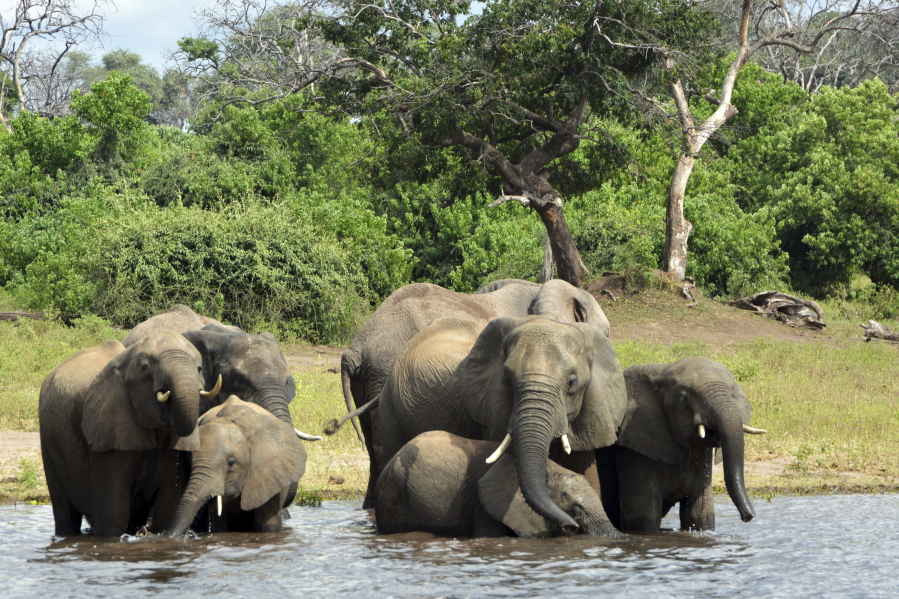MOMBASA, Kenya — Gobonamang Kgetho has a deep affection for Africa’s largest inland delta, the Okavango. It is his home.
The water- and wildlife-rich land is fed by rivers in the Angolan highlands that flow into northern Botswana before draining into Namibia’s Kalahari Desert sands. Several Indigenous and local communities and a vast array of species including African elephants, black rhinos and cheetahs live among the vibrant marshlands.
Kgetho hails from Botswana’s Wayei community and relies on his pole and dug-out canoe to skirt around the marshes looking for fish. But things have changed in recent years — in the delta and across the country.
“The fish sizes have shrunk, and stocks are declining,” Kgetho told The Associated Press. “The rivers draining into the delta have less volumes of water.”
Drilling for oil exploration, as well as human-caused climate change leading to more erratic rainfall patterns and water abstraction and diversion for development and commercial agriculture, has altered the landscape that Kgetho, and so many other people and wildlife species, rely on.
The delta’s defenders are now hoping to block at least one of those threats — oil exploration.
A planned hearing by Namibia’s environment ministry will consider revoking the drilling license of Canadian oil and gas firm Reconnaissance Energy. Local communities and environmental groups claimed that land was bulldozed and cut through, damaging lands and polluting water sources, without the permission of local communities.
Kgetho worries that rivers in his region are drying up because of “overuse by the extractive industries, including oil-exploration activities upstream.”
In a written statement, ReconAfrica, the firm’s African arm, said it safeguards water resources through “regular monitoring and reporting on hydrological data to the appropriate local, regional and national water authorities” and is “applying rigorous safety and environmental protection standards.”
The company added that it has held over 700 community consultations in Namibia and will continue to engage with communities there and in Botswana.
Reconnaissance Energy has been drilling in the area since 2021 but is yet to find a productive well. The hearing was scheduled for Monday but has been postponed until further notice. The drilling license is currently set to last until 2025, with ReconAfrica previously having been granted a three-year extension.
Locals have persisted with legal avenues but have had little luck. In a separate case, Namibia’s high court postponed a decision on whether local communities should pay up for filing a case opposing the company’s actions.
The court previously threw out an appeal made by local people to stop the Canadian firm’s drilling activities. It’s now deciding whether the government’s legal feels should be covered by the plaintiffs or waived. A new date for the decision is set for May.
Namibian energy minister Tom Alweendo has maintained the country’s right to explore for oil, saying that European countries and the U.S. do it, too. He supports the African Union’s goal of using both renewable and non-renewable energy to meet growing demand.




